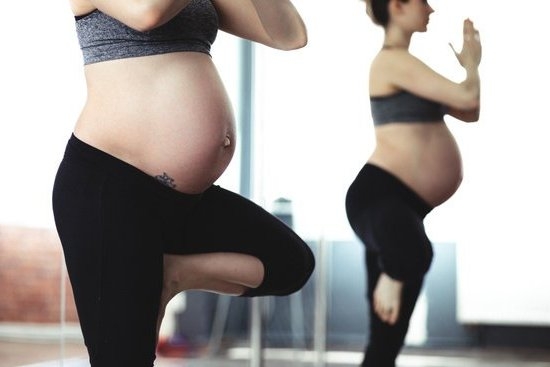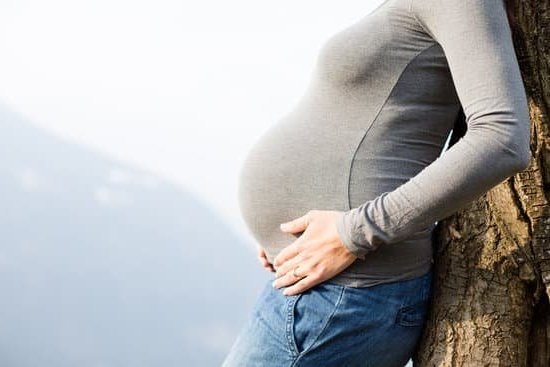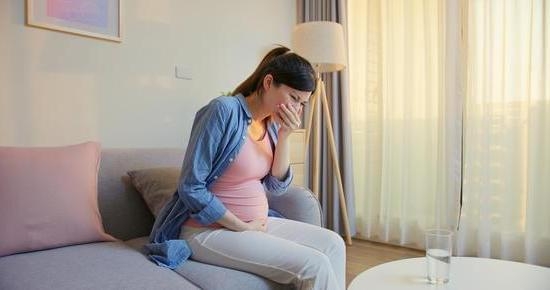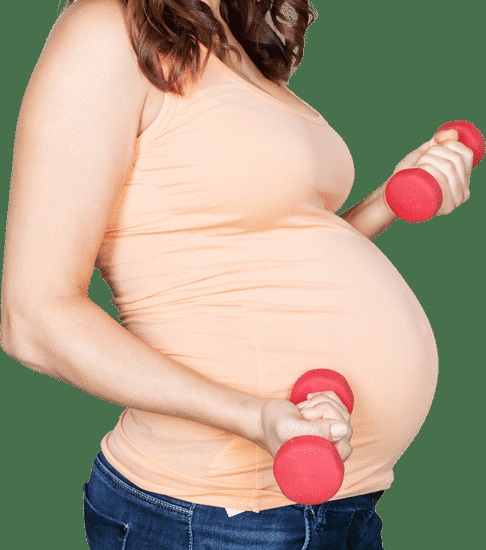Introduction
If you suspect you might be pregnant with twins, there are a few signs that may indicate it’s true. Knowing if you are carrying twins can be beneficial in multiple ways, as it will allow you and your doctor to plan accordingly for the pregnancy and the delivery. Some of the potential signs that suggest it’s possible include increased morning sickness, extra fatigue or exhaustion, elevated hCG levels in blood tests and ultrasounds detecting more than one developing fetus.
When it comes to feeling nausea, women carrying twins may experience more intense and longer-lasting feelings of morning sickness. Higher levels of pregnancy hormones equate to greater instances of this symptom emerging at an earlier stage in the pregnancy. Fatigue is also fairly common during a twin pregnancy as having two babies on board requires significantly more calories so your body has to work harder in order to maintain its energy levels. Consequently, if you’re feeling unusually exhausted throughout your pregnancy, this could indicate that you are carrying two babies rather than just one.
In order to confirm whether or not a woman is pregnant with twins an ultrasound scan typically has to be carried out by an experienced doctor or midwife. He/she will be able to look for clues such as hearing two different heartbeats, seeing two gestational sacs in the womb or identifying two distinct embryos – all these visual cues provide strong indicators that a mother is indeed expecting twins! Furthermore, blood tests measuring human chorionic gonadotropin (hCG) – a hormone secreted during early stages of pregnancy – can also give insight into multiples being present as higher amounts signify an increased likelihood of having both fraternal and identical twins compared with typical single births.
Knowing about twin pregnancies sooner rather than later provides many advantages for both mother and care team alike; through proper planning prenatal appointments can be concisely scheduled and oftentimes special care plans tailored specifically for each individual case can be established from the start ensuring mothers receive first-class medical support throughout their journey. Additionally, mom-to-be gets extra time to prepare her birthing plan as well while she awaits the amazing arrival of her two little bundles of joy!
Nesting Instincts
Twin pregnancies can be life changing experiences, and often elicit an instinctive urge to begin preparing for the arrival of your impending babies. This nesting instinct can manifest in a variety of ways, as you instinctively look to prepare your home and prepare yourself both mentally and physically for the upcoming double-duty.
If you’re pregnant with twins, one of the most obvious signs is having a higher level of hCG, or human chorionic gonadotropin, in your system. To determine this, doctors will usually perform a blood test and ultrasound to check if there are two fetuses present. Through ultrasound imaging, they may also be able to tell if the babies are identical or fraternal depending on whether or not they share an amniotic sac. Another reliable way to identify multiple pregnancies is experiencing greater changes such as abdominal size due to larger amounts of amniotic fluid or faster fetal growth rates than normal. Some other common signs include increased fatigue, morning sickness that lasts well into the second trimester and rapid weight gain.
As far as prepping for your twin arrival goes, here are some useful tips you can do ahead of time: First off, plan meals ahead so you don’t have to worry about what you’ll make each night — pre-made frozen meals could be a lifesaver! Secondly pick up essential items like car seats (for two!) and diapers (in bulk!) beforehand so that once they arrive you’re ready! You should also invest in baby-proofing supplies so that when those little ones are up on their feet (which can happen earlier with multiples!), you know that their environment is safe for them to explore. Lastly start planning out how you will divide activities for each twin — keep similar objects/activities separate so that it’s easier for them recognize who’s theirs when playing together down the road!
Understanding the Biological Causes
One clear way to tell if you are pregnant with twins is via ultrasound. During an ultrasound, the doctor or technician can confirm if there are two babies present in the uterus. In many cases, twins will show up on an early scan as two separate gestational sacs. Sometimes it may be more difficult to distinguish a single baby from two depending on how far along the pregnancy is and other factors.
Other tests may also indicate your likelihood of carrying twins. A blood test at 8-11 weeks can determine the levels of Human Chorionic Gonadotrophin (HCG) in your bloodstream, which can indicate a multiple gestation if it’s high since HCG is produced more rapidly when the body’s developing twin fetuses. A fetal cell-free DNA screening test is another option that involves simple blood tests that specifically search for signs of gender and any chromosomal abnormalities happening in either baby – if both chromosomes present, it could increase the likelihood you’re going to have twins.
The biological causes of having twins vary from family history to certain lifestyle choices like fertility drugs. If you have a history of fraternal (identified by different placental sacks) or identical (same placental sack and fertilized egg) twins in your family members, although not as common as before, you can have a higher chance of conceiving them yourself through assisted reproductive treatments such as IVF – but this comes with no guarantees due to all being an unpredictable process. There are other calculated ways such as maternal age and race that give insight into the possibility of having multiples; however they should not be taken into consideration too heavily when determining whether you will definitely have twins or not.
Increased Hormonal Levels
The role of hormones in determining whether a pregnant woman will give birth to twins or singletons can be complicated. While hormone levels can’t always be used to diagnose a twin pregnancy, they can sometimes provide clues about the likelihood that a woman is carrying multiples. The most significant hormone involved in determining twin pregnancy is Human Chorionic Gonadotrophin (hCG). Historical research has shown that more than 80 percent of women who are expecting twins have higher hCG levels than women with singleton pregnancies. Additionally, it’s been observed that hCG doubling time tends to be faster for those pregnant with multiples. Nevertheless, there is also evidence indicating that some twin pregnancies may present as low-level hCG cases and this makes it difficult to identify a twin pregnancy solely based on testing hCG levels; other medical data would need to be collected in order for accurate results to be determined.
It’s important that pregnant women consult their doctors if they suspect they may carrying twins so that multiple blood tests, ultrasound imaging, and other forms of medical technology can accurately assess the situation. Paired with physical evidence like feeling unusually energetic or nauseous during early stages of the pregnancy, these important assessments will help to make an accurate diagnosis as soon as possible so that mothers-to-be can properly prepare for their growing families.
Fertility Treatments and Their Effects
It is possible to increase the chance of having twins through certain fertility treatments. The use of medicines such as Clomid and gonadotropins (which help produce eggs) can raise the likelihood of conceiving twins. Assisted reproductive technology, or ART, such as in vitro fertilization or intracytoplasmatic sperm injection (ICSI) can also increase the chance of having twins because multiple embryos may be placed in the woman’s uterus during treatment.
Women who are pregnant with twins may have an irregular menstrual cycle, higher levels of hCG (human chorionic gonadotropin), higher levels of estrogen and progesterone hormones and experience more nausea than those who just have one baby growing. Also in some cases women with multiple babies feel fetal movements earlier than those that only carry one infant. It is important to note, however, that it is not uncommon for women carrying a single baby to experience these same symptoms. Therefore, these cannot be taken as definitive signs you are carrying twins.
If your physician suspects that you may be pregnant with multiples they will most likely order an ultrasound which will show an image of how many babies are growing inside the womb. Additionally, other imaging techniques such as MRI or Doppler sonogram can further confirm your pregnancy with twins if necessary. Ultimately ultrasounds tend to be more reliable than other testing methods for determining twin pregnancies early on in gestation
Family History
Family history can often help provide information about the likelihood of having twins. Since there is a genetic component to twinning, women with a family history of fraternal twins (or multiple births) will have a greater chance of having twins as well. Likewise, if you have some relatives that are identical twins, your chances may also be higher.
In recent studies, researchers have discovered several genes that play an important role in twinning and infertility. A gene called FGFR2 is associated with having fraternal twins, while the gene MSX1 has been linked to identical twins. Additionally, genetic abnormalities like Down Syndrome can increase the chances of having fraternal twins.
It’s important to note that genetics only play a small part in determining if someone will give birth to multiples. Other factors such as diet and age can affect the likelihood of conception and pregnancy with multiples. Women over 35 years old tend to be more likely to give birth to two babies at once than younger women. Overall, it is not possible to accurately predict whether or not any given woman will give birth to two children at once without ultrasound testing or other medical tests.
The Role of Uterine Structuring
One of the earliest ways to find out if a woman is pregnant with twins is to look at the structure of her uterus. The presence of an unevenness in the uterus which can be seen via ultrasound, or with specific imaging tests such as an internal pelvic ultrasound, can indicate that a woman is carrying more than one fetus. This occurs when there is either an asymmetry between two sides or an abnormal shape to the area in general. Looking for this kind of unevenness can often be helpful in determining if twin pregnancies might be likely.
In addition, there are additional characteristics such as excessive womb space that can confirm indications that a woman may be pregnant with twins. When conception takes place, hCG (human chorionic gonadotropin) hormone levels increase significantly and this leads to both an enlargement of the uterus and subsequent changes in its structure and configuration. The amount of available room/space within the uterus is one method used by doctors to detect if a mother could be expecting multiple babies as opposed to just one fetus. Women who do have double occupancy tend to have very large uteruses compared to their physique size and stature. Depending on the placement of fetuses and their size, the uterine shape could appear either symmetrical or uneven even further increasing the chances that more than one baby is present inside her body.
Ultrasounds and Their Role
An ultrasound is one of the most common and reliable ways to determine if you are pregnant with twins or other multiples. During an ultrasound, a technician will use high-frequency sound waves to produce images of your baby in the womb using a transducer. Ultrasounds can examine the baby’s size and development, detect heartbeats, assess organs, measure amniotic fluid levels, and even assign genders! However, usually in the first trimester – between 8 and 14 weeks gestation – it is possible to clearly see two yolksacs (used to nourish babies before they form their own placenta) in the same gestational sac during an ultrasound when pregnant with twins. Later on in pregnancy – like 28 weeks or later – ultrasounds can accurately differentiate between twins and other multiples as there will be two separate gestational sacs for each baby along with distinct placentas.
Other tangible signs that indicate you may be pregnant with twins include extra morning sickness, increasingly severe side pains indicating multiple embryos implanting themselves in your uterus wall, increased weariness due to heightened hormone production affecting blood pressure leading to reduced energy levels, relief from symptoms after the twelfth week such as morning sickness due to a shared placenta circulating hormones more evenly among them. If any signs coincide with each other this would raise suspicion of being pregnant with twins should be verified by an ultrasound for confirmation.
Prenatal Testing
Most pregnant women who suspect they may be carrying twins tend to rely on a few methods to identify if this is the case. The most definitive answer comes from a prenatal ultrasound. Ultrasounds measure the amount of fluid in the uterus and detect the presence of two separate heartbeats. Layers of amniotic sacs are also present in multiple pregnancies, which can be seen clearly on an ultrasound scan. However, it should be noted that ultrasounds cannot definitively confirm twins before 8–10 weeks of pregnancy since it can be difficult to detect two amniotic sacs before this stage.
In addition to an ultrasound, other noninvasive methods can help determine if you’re expecting twins. A maternal blood test known as OSCAR (one-step combined screen) can reliably tell mums-to-be if they’re having a multiple pregnancy in only 10 minutes using just one sample of your blood. The noninvasive prenatal test (NIPT) checks the mom’s blood for fragments of the fetus’s DNA and can identify possible chromosomal abnormalities including Down Syndrome and abnormal embryo findings during early pregnancy. According to research by British scientists at Oxford University, NIPT has greater accuracy than other forms of testing when it comes to quickly and accurately determining if you’re having multiples or not.
Conclusion
If you think you might be pregnant with twins, it is important to get professional medical advice as soon as possible. Your doctor will be able to order tests and ultrasounds that will tell definitively. Some signs that may indicate a twin pregnancy include higher than usual hCG levels during early pregnancy, larger-than-normal uterus size when examined at an ultrasound or other imaging test, and two fetal heartbeats heard at differing rates during pregnancy. There is also a greater chance of experiencing morning sickness or increased fatigue due to producing more hormones than with a singleton pregnancy. A mother who has already been pregnant with twins or whose family has a known history of multiple births also increases the likelihood of carrying multiples. As the science of reproductive medicine advances, it is becoming easier for women to determine if they are expecting twins even before taking medical tests.

Welcome to my fertility blog. This is a space where I will be sharing my experiences as I navigate through the world of fertility treatments, as well as provide information and resources about fertility and pregnancy.





